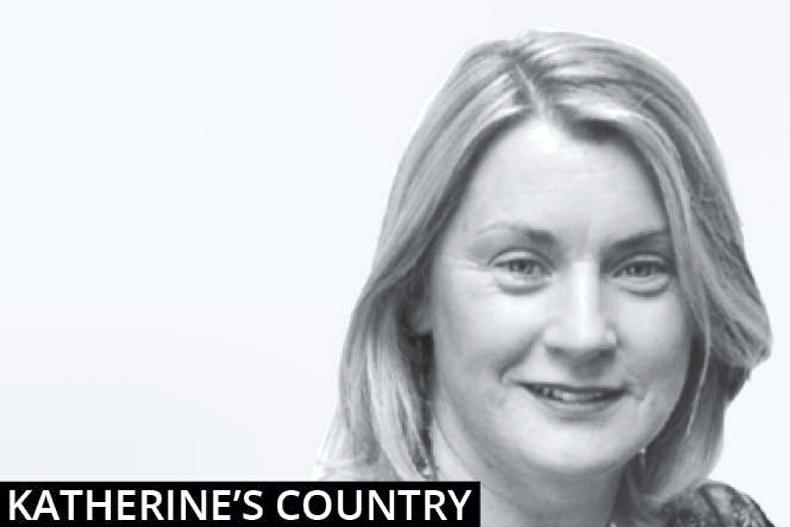When the few drops of rain started to fall last week; we practically did a rain dance. There was no moisture anywhere, not in the garden and especially not in the rain gauge. The grazed grass was yellow and crisp underfoot with little regrowth. Gradually a few millimitres began to register in the gauge.
At least the drought was broken but only marginally, resulting in what my husband Tim calls a “green drought” – where the grass is green but the growth and yield of grass is depressed.
The rain did gather a bit of ground resulting in about 12mm in the gauge
I was warned not to touch the washing on the line! The instinct is to rush to the line to grab the dry clothes. Yet I stalled. Tim is not given to “pishoguery” but if I ran for the washing; the rain might stop! I think it’s an example of just how stressed farmers can be waiting for rain.
The rain did gather a bit of ground resulting in about 12mm in the gauge which was akin to a load of ration falling from the sky. In other words; the meal feeding to the cows could be reduced.
Tension acute
Up to that point, you could have cut the tension in the house with a knife as the concern about feeding the cows intensified.
Nobody realises that they feel tense until that rain starts to fall and the tension flows down the arms and out the finger tips
The cost of feeding them rises considerably in the absence of grass.
Nobody realises that they feel tense until that rain starts to fall and the tension flows down the arms and out the finger tips. That’s when you realise that we’ve all been going around like wound-up springs. The non-farming public really have no understanding of this.
Every drop is helpful. The fields are greening up fast
My walking pals say to me: “Ye must be very happy now with the rain!” I’m at pains to explain that a few showers are no good to us in the grand scheme of things and that we would need a few days “grand soft rain”. It’s usually followed by the comment: “At least let it rain during the night!”
We’ve now had another 8mm and may get a bit more over the weekend. Every drop is helpful. The fields are greening up fast. Watery slurry has been spread on some paddocks and that too will help growth.
Meanwhile the consensus is to hold off on spreading more nitrogen as it is there in the soil from the previous round waiting to be mineralised. The only missing element for growth is moisture. The soil temperature remains high, so as soon as we have proper rain there should be a burst of growth.
Next moves
At the moment the cows are on 3kg of ration/day and Tim and our son Colm are discussing whether or not they should feed some silage bales to conserve the grass. We don’t want to eat into precious feed that might be needed in the back end or early next spring. Yet, we don’t want to depress yields. It is a fine balance.
At the moment there is a bale per cow stored. Ideally, we’d prefer to have two per cow.
Tim tells me that this is estimated doing the back calculation, ie after the cows have grazed
The growth rate has slowed to 27kg or 28kg dry matter (DM) per hectare for both farms while the demand is 35kg to 40kg. It is quite amazing that both farms are running along with practically the same figures. Does it mean that a model of farming when replicated does in fact yield practically the same results? It is heartening in a way to know that expansion works once you tick all the boxes. We are grazing grass covers of 1,300kg. Tim tells me that this is estimated doing the back calculation, ie after the cows have grazed.
Cow demand may also be down due to the hot weather. Production is holding and that is the bottom line.
Three leaves optimum
I also learned this week that grass has to have three leaves before the cow grazes it. Forty to 50% of the feeding value of the plant is in that third leaf so grazing too soon hugely depresses potential yields. If the plant shoves out a fourth leaf; then the bottom leaf dies. The science is amazing.
Both Tim and Colm are grass walking every four or five days at the moment. This is critical to keep on top of what’s happening and to make the right decisions to maintain milk production. More rain would be most welcome down here in Cork.








SHARING OPTIONS